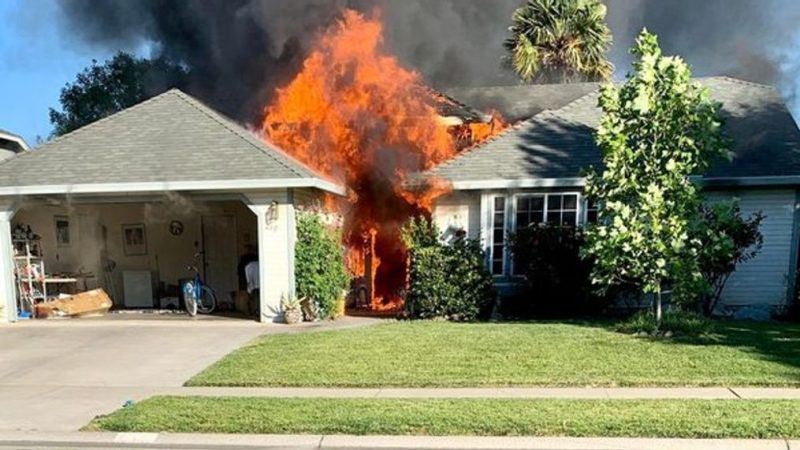Fire accidents can cause devastating damage to property and finances. To safeguard against such unforeseen events, standard fire insurance offers comprehensive protection for your home, office, or business. This type of insurance provides financial compensation for losses caused by fire, lightning, and other related risks.
In this article, we’ll explore the details of standard fire insurance, including what it covers, its exclusions, benefits, and tips for selecting the right policy to protect your assets.
What Is Standard Fire Insurance?
Standard fire insurance is a type of property insurance that provides coverage against losses or damages caused by fire and other perils. It offers financial protection by compensating the insured for damages to buildings, contents, or other assets covered under the policy.
Key Features of Standard Fire Insurance
- Covers damages caused by fire, lightning, and related perils.
- Offers protection for both residential and commercial properties.
- Includes coverage for building structures and movable assets like furniture and machinery.
Coverage of Standard Fire Insurance
The scope of a standard fire insurance policy includes various risks beyond just fire.
Fire Damage
- Covers damages caused by accidental fires, electrical faults, or equipment malfunctions.
Lightning Damage
- Provides protection against structural damage or fires caused by lightning strikes.
Explosion
- Covers damages resulting from gas explosions or other accidental explosions within the premises.
Smoke Damage
- Includes damages caused by excessive smoke resulting from fire accidents.
Natural Disasters
- Some policies cover destruction caused by natural disasters like earthquakes, storms, or floods if explicitly mentioned in the policy.
Damage from Riot or Strikes
- Protects against property damage caused by riots, strikes, or civil disturbances.
Exclusions in Standard Fire Insurance
While standard fire insurance covers a range of risks, it does have exclusions.
Intentional Damage
- Losses caused by deliberate actions or negligence by the policyholder are not covered.
War and Nuclear Risks
- Damage resulting from war, invasion, or nuclear hazards is excluded.
Wear and Tear
- Normal wear and tear or gradual deterioration of property is not covered.
Electrical Short Circuits Without Fire
- If a short circuit occurs without causing a fire, it is generally not covered.
Theft After a Fire
- Losses due to theft occurring after a fire incident may not be included unless specified.
Benefits of Standard Fire Insurance
Financial Protection
- Compensates for damages, helping policyholders recover without significant financial strain.
Peace of Mind
- Knowing your property is insured reduces anxiety about potential losses.
Coverage for Movable and Immovable Assets
- Protects not just the structure but also its contents, like furniture, electronics, and equipment.
Customizable Options
- Policies can be tailored to include additional coverage like natural disasters or specific perils.
Essential for Businesses
- Protects businesses from operational disruptions and significant financial losses caused by fire-related incidents.
How to Choose the Right Standard Fire Insurance Policy
Selecting the right fire insurance policy requires careful consideration of your property’s needs and potential risks.
Assess Your Needs
- Evaluate the value of your property and its contents.
- Consider specific risks like location (e.g., areas prone to wildfires or lightning).
Compare Policies
- Review coverage, exclusions, and premium costs across different insurers.
- Look for additional benefits like coverage for natural disasters or temporary relocation expenses.
Check the Insurer’s Reputation
- Choose a reliable insurance company with good reviews and a high claim settlement ratio.
Understand the Terms
- Read the policy document carefully to understand what is and isn’t covered.
- Look for optional add-ons to extend your coverage.
Review the Sum Insured
- Ensure the sum insured is adequate to cover the total value of your property and contents.
How to File a Claim for Standard Fire Insurance
In case of a fire or related damage, follow these steps to file a claim:
- Notify the Insurer Immediately
- Inform your insurance provider about the incident as soon as possible.
- File an FIR (If Required)
- In case of suspected arson or theft, file a First Information Report (FIR) with the local authorities.
- Document the Damage
- Take photos and videos of the damage for evidence.
- Keep receipts or invoices for damaged items.
- Submit the Claim Form
- Fill out the claim form provided by the insurer and submit all required documents.
- Inspection and Assessment
- The insurer will send a surveyor to assess the extent of the damage.
- Claim Settlement
- Once verified, the insurer will process and disburse the claim amount.
Conclusion
Standard fire insurance is an essential safeguard for homeowners, businesses, and property owners. It provides comprehensive protection against fire and related perils, ensuring financial security and peace of mind.
By understanding the coverage, exclusions, and benefits, you can choose a policy that best suits your needs. Whether you’re protecting your home or business, investing in fire insurance is a crucial step toward safeguarding your assets from unforeseen disasters.
Ready to protect your property? Compare standard fire insurance policies today and choose the best coverage for your needs!
FAQs
1. What does standard fire insurance cover?
It covers damages caused by fire, lightning, explosions, smoke, and certain natural disasters if specified in the policy.
2. Is fire insurance mandatory?
While not mandatory for individuals, some lenders require fire insurance for properties with a mortgage or business premises.
3. Can I customize my fire insurance policy?
Yes, many insurers offer add-ons like earthquake coverage, terrorism coverage, or protection for additional assets.
4. How is the premium calculated?
Premiums depend on factors such as property value, location, coverage options, and the insurer’s risk assessment.
5. Can a standard fire insurance policy cover natural disasters?
Yes, but coverage for natural disasters like earthquakes or floods must often be added as an optional extension.
Also read: Business Drivers: The Key to Unlocking Organizational Success









